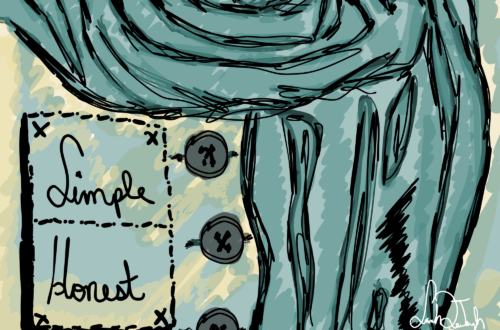Unforgiveness is one of the most painful burdens a person can carry. It’s something God speaks often of in his word- his forgiveness of our sins and our forgiveness of others. Forgiveness shows up, perhaps most famously, in the Lord’s prayer (“And forgive us our debts, as we also have forgiven our debtors.” Matthew 6:12, ESV). We see it echoed in the old testament and in the new testament: there is forgiveness from the Lord for those who repent and the expectation that the forgiven in turn forgive others.
An apostle’s question and a parable.
Why are Christians called to forgive? Because we understand what it means to be forgiven. God invites us to, not just understand, but participate in this fundamental aspect of his character: forgiveness. We see this in Matthew 18. Peter asks the Lord a simple question: how many times should he forgive his brother?
‘“Then Peter came up and said to him, “Lord, how often will my brother sin against me, and I forgive him? As many as seven times?” Jesus said to him, “I do not say to you seven times, but seventy-seven times.” Matthew 18:21-22 (ESV).
Jesus goes on to tell the story of a King who, when settling accounts with his servants, found a servant who owed him an incredible amount of money. Because he could not pay, the servant was looking at being sold, along with all his possessions and his family. When he begged for mercy, the king had compassion and not only released him, but forgave the debt entirely! It’s a happy story, right? The Lord goes on to tell how the man was not changed by this encounter with a merciful king. The servant found his fellow servant who owed him a much smaller sum- and when he plead for mercy, his pleas fell upon deaf ears.
“But when that same servant went out, he found one of his fellow servants who owed him a hundred denarii, and seizing him, he began to choke him, saying, ‘Pay what you owe.’ So his fellow servant fell down and pleaded with him, ‘Have patience with me, and I will pay you.’ He refused and went and put him in prison until he should pay the debt. When his fellow servants saw what had taken place, they were greatly distressed, and they went and reported to their master all that had taken place. Then his master summoned him and said to him, ‘You wicked servant! I forgave you all that debt because you pleaded with me. And should not you have had mercy on your fellow servant, as I had mercy on you?’ And in anger his master delivered him to the jailers, until he should pay all his debt. So also my heavenly Father will do to every one of you, if you do not forgive your brother from your heart.” Matthew 18:28-35 (ESV).
Why was the master displeased? Because he expected he who had been shown mercy to show mercy! The man in the story was not changed by the experience of forgiveness and freedom, he did not reflect the compassion or the grace of his master. I read this story and I’m cut to the heart. God has called every one of his own to be children of grace. We’re called to bring that grace into our families, our small groups, our workplace, and the grocery store. Do we show compassion in the small irritating moment? What about the big things? In the face of life shattering, deliberate choices of those who have hurt us, can we extend forgiveness?
God invites us to understand his grace experientially through forgiving those who have wronged us.
I have to ask myself this question: have I stood in the grace and forgiveness of God to such an extent that it’s changed me? After receiving the Holy Spirit, am I willing to be more like my master and reflect that grace to others? God invites us to understand his grace experientially through forgiving those who have wronged us. Are we ready to participate in his grace, beyond that first step of receiving it for our own moral failures- are we ready to extend it as well?
Forgiving yourself.
I was talking with a dear friend today about self-forgiveness. Forgiving oneself is complicated, as feelings of shame and remorse can override even deeply held beliefs about grace. How do we forgive ourselves for past failure? Can we know God’s heart on the matter? There’s an interesting passage in 2 Corinthians about forgiveness and comfort for the repentant.
“Now if anyone has caused pain, he has caused it not to me, but in some measure—not to put it too severely—to all of you. For such a one, this punishment by the majority is enough, so you should rather turn to forgive and comfort him, or he may be overwhelmed by excessive sorrow. So I beg you to reaffirm your love for him.” 2 Corinthians 2:5-8
What is the apostle Paul saying? Don’t let your repentant brother or sister be overwhelmed by excessive sorrow! There comes a point where it is enough- the point was Godly sorrow, and it’s present in their repentance. Comfort the downcast in their remorse. Here we see the heart of God for those who truly seek forgiveness through Jesus. And here Dear Sister, we see God’s heart for us. He longs to comfort and restore the repentant. Not only does he desire that we share in that experience, he also wants us to forgive from the heart. Here we find the recipe for forgiving ourselves- seeing our state through God’s eyes. When he asks us to forgive, he is not asking us to do something he is not willing to do (or hasn’t done), he’s asking us to reflect his character toward those who have wronged us. If we, who are so imperfect in our actions, are called to forgive – how much more are we forgiven? If we are called to comfort the contrite, how much more is God willing to comfort us when we are broken in repentance? There’s complete restoration and wholeness for the child of God!
Leaning into God’s grace.
My prayer for myself and all reading this, is that we lean into the grace of God, accept his pardon and peace in the Lord Jesus Christ, and reflect this aspect of his character in all situations (especially the painful ones). We don’t have to do it on our own, the Holy Spirit is so faithful to enable us to carry out the will of God. If this is an area of struggle, I encourage you to ask the Lord for wisdom- he is faithful to answer and equip you for whatever you are called to do. We don’t operate in our own strength- and let’s face it, forgiveness often goes against our feelings. But it is part of the character of Christ and through his strength, it is absolutely possible to live as a child of grace.
** An important note: compromising one’s safety is never recommended. There can always be forgiveness without friendship or proximity. If anyone finds themselves in an abusive situation, it is important to reach out for help!






